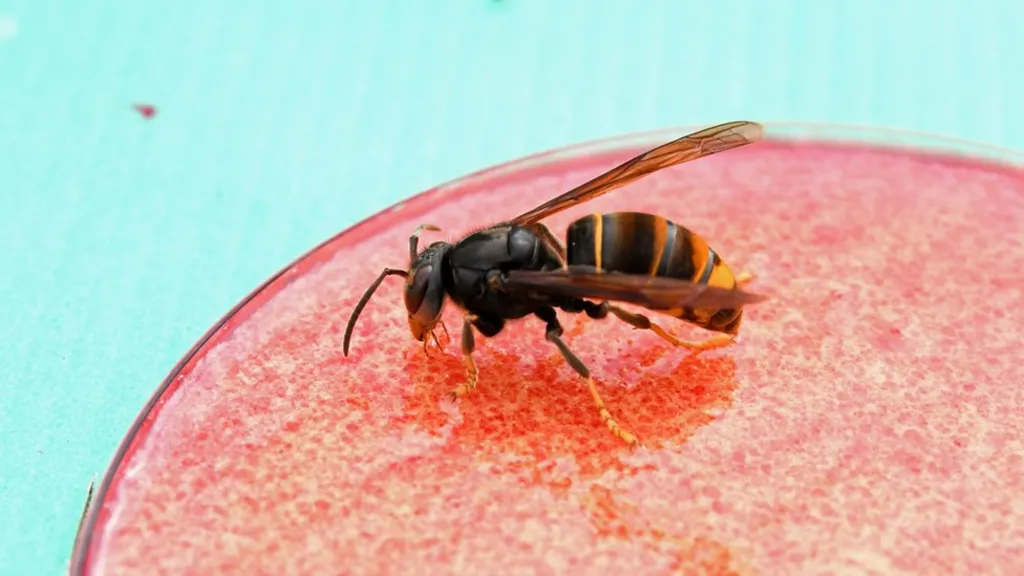Scientists have developed artificial intelligence (AI) to detect invasive Asian hornets, a Devon university says.
The University of Exeter said the automated system created by its researchers attracted hornets to a monitoring station and captured standardised images Its system, VespAI, could identify the species with “almost perfect accuracy”, said the university.
The institution also said the system had been tested in the Channel Islands.
‘Encouraging' results
Dr Thomas O'Shea-Wheller, from the Environment and Sustainability Institute on Exeter's Penryn Campus in Cornwall, said the goal was to develop something “cost-effective and versatile”. He also said anyone could use it, from governments to individual beekeepers.
He said: “This study tested a prototype version, and the results were encouraging.
“VespAI shows promise as a robust early warning system to detect Asian hornet ingressions into new regions.” The university said VespAI used a compact processor to operate and remained dormant unless its sensors identified an insect within the size range of a hornet.
It said the system's AI algorithm activated and analysed the image to determine if it was an Asian hornet (Vespa velutina), or native European hornet (Vespa crabro). If an Asian hornet was detected, the monitor then sent an image alert to the user, allowing them to confirm the identification.
The university explained 2023 saw “record numbers” of Asian hornet sightings in the UK. They are a top predator of honeybees, decimating hives and damaging biodiversity, with just one hornet able to kill and eat up to 50 bees a day.

The invasive hornets have been wreaking havoc in mainland Europe and threatening to get a foothold in the UK, with nests found in East Sussex, Kent, Devon and Dorset. The university said the UK response strategy depended on people seeing, identifying and reporting hornets.
‘Vigilant, accurate surveillance'
Dr Peter Kennedy, who conceptualised the system, said a majority of the reports submitted were “misidentified”.
“Our system thus aims to provide a vigilant, accurate and automated surveillance capability to remediate this,” he said.
“VespAI does not kill non-target insects, and thus eliminates the environmental impact of trapping, while ensuring that live hornets can be caught and tracked back to the nest, which is the only effective way to destroy them.”
The university explained the system was tested in Jersey during its project, which experienced “high numbers of Asian hornet incursions due to its proximity to France”. Dr O'Shea-Wheller said the high accuracy of VespAI meant that it would not wrongly identify other species or miss any Asian hornets that visited.
The research project included both biologists and data scientists from the University of Exeter's Environment and Sustainability Institute, Centre for Ecology and Conservation and Institute for Data Science and Artificial Intelligence.


